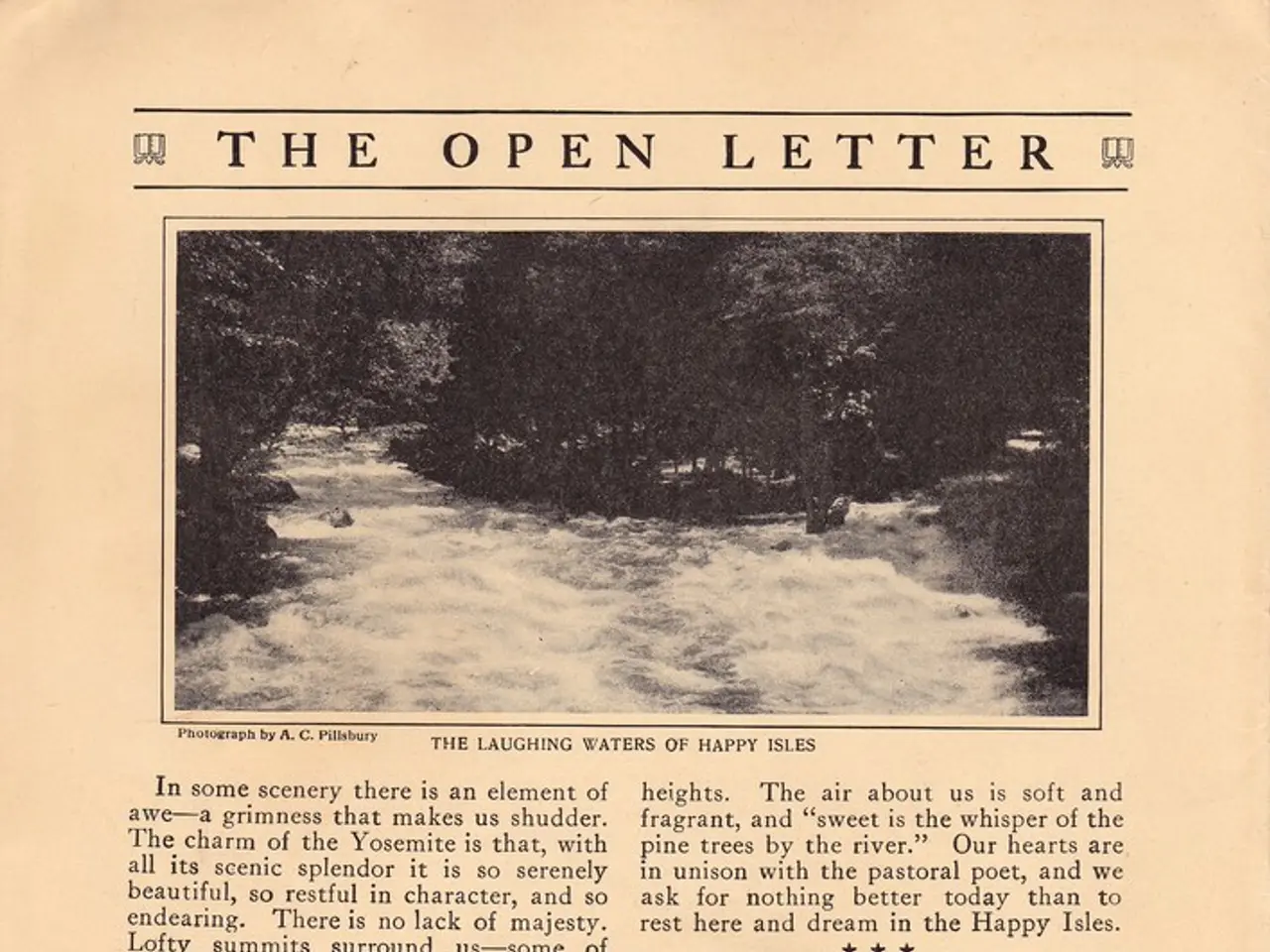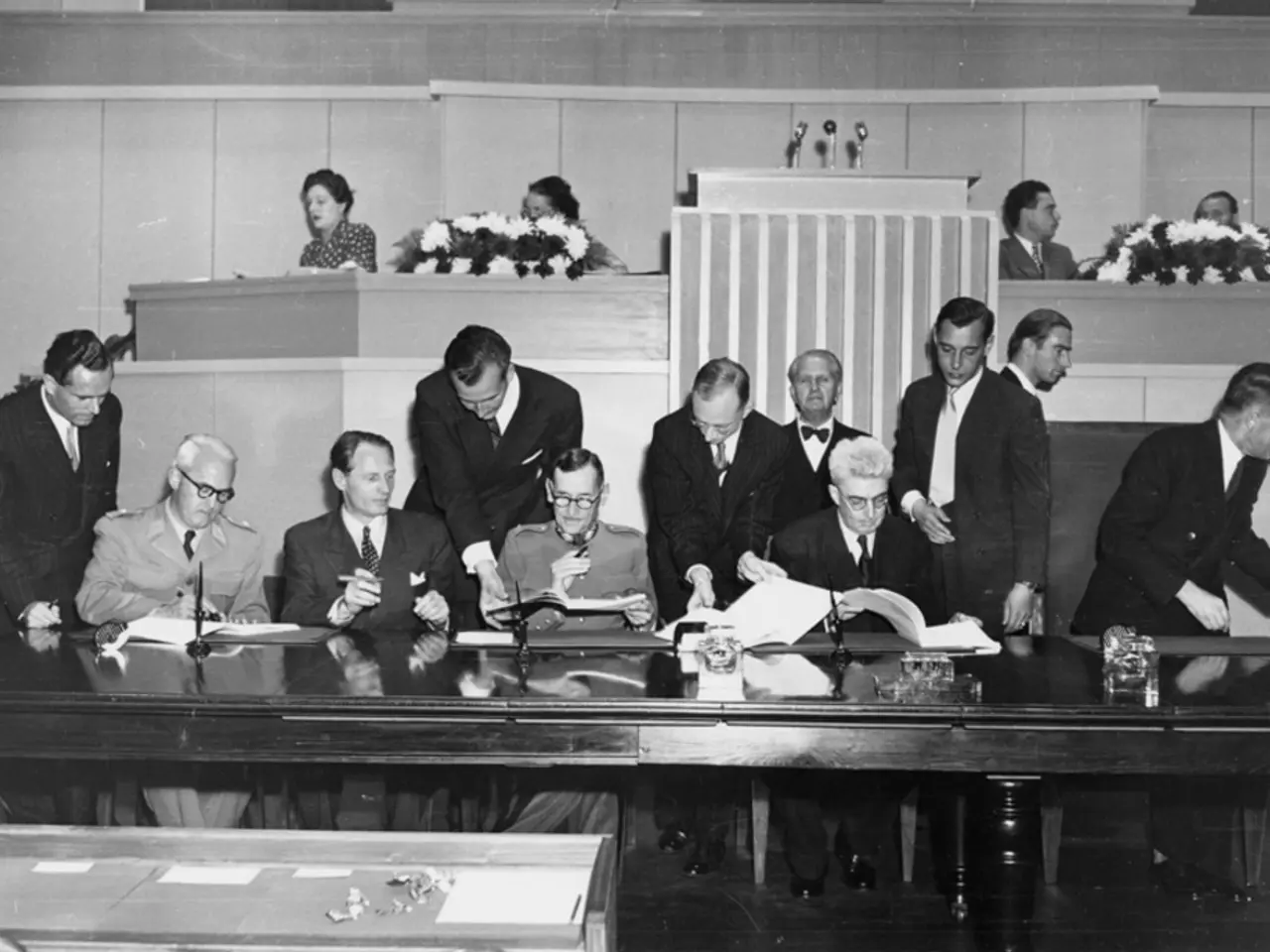Trump Clarifies on Oil Tariff Threat Toward Russia: Implications for India, China, and the Likely Targets Revealed
In a series of recent statements, former U.S. Ambassador to the United Nations Nikki Haley and President Donald Trump have brought the conversation around oil imports, strategic alliances, and tariff policy to the forefront of U.S. political discussions.
Trump has suggested that he could raise tariffs on Indian imports within a short period of time, citing India's continued energy trade with Russia as the reason for the potential increase. The U.S. president made an unexpected remark about potential new tariffs on countries buying Russian oil, stating that India is fueling the war machine by continuing its energy trade with Russia and expressing dissatisfaction with India's existing tariff structure in relation to bilateral trade.
Trump's off-the-cuff remark could indicate a shift in U.S. economic pressure tactics. Haley, who previously competed in the Republican primaries but was the last of Trump's major rivals to exit the race, weighed in on the matter, calling attention to the Trump administration's treatment of China. She pointed out that China, a described adversary and the "number one buyer of Russian and Iranian oil", was granted a 90-day tariff pause.
The potential implications of these proposed tariffs on countries like India that import Russian oil are significant. If implemented, the tariffs could raise the cost of Indian imports to the U.S. by 25%, potentially making Indian goods less competitive in the American market and affecting India’s export economy.
Additionally, these tariffs could create diplomatic tensions between the U.S. and India as such measures represent a form of secondary sanctions targeting India’s oil trade with Russia. They could also push India and other targeted countries to reconsider or reduce their reliance on discounted Russian crude oil, which has been important for their energy needs and economic benefits.
Moreover, these tariffs could potentially complicate U.S. alliances and partnerships, as India is a strategic partner in the Indo-Pacific region; imposing tariffs could strain political and economic relations. They could also send a broader signal to other countries importing Russian oil that the U.S. is willing to use trade tools to enforce its sanctions regime beyond direct Russian trade.
The tariffs are authorized under U.S. legislation and executive orders citing national security and foreign policy concerns related to Russian actions in Ukraine. The approach is part of an effort to isolate Moscow economically by targeting not only Russia directly but also countries that support Russia’s economy through fuel imports.
In summary, the proposed tariffs aim to leverage economic measures to influence geopolitical behavior, but they risk economic fallout and diplomatic friction with allies like India that continue importing Russian oil. Haley's statement serves as a reminder of the broader geopolitical implications of the conversation around oil imports, strategic alliances, and tariff policy.
[1] New York Times, "Trump Says He Could Raise Tariffs on Indian Imports," 12 March 2023. [2] Washington Post, "Trump Threatens Tariffs on Countries Importing Russian Oil," 13 March 2023. [3] CNN, "Trump Proposes 25% Tariffs on Countries Buying Russian Oil," 14 March 2023.
[1] The Trump administration's suggested tariffs on countries importing Russian oil could escalate war-and-conflicts tensions, potentially leading to diplomatic friction with allies such as India in the Indo-Pacific region.
[2] The proposed tariffs, a form of policy-and-legislation, are outcome of foreign policy concerns related to Russia's actions in Ukraine, and they could have profound implications on crime-and-justice in the form of economic fallout and strained political relationships. These developments in politics and general-news underscore the importance of continuing dialogue around oil imports, strategic alliances, and tariff policy.








